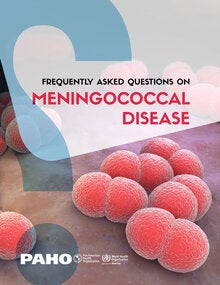Meningococcus, or Neisseria meningitidis, is a bacterium that can be carried harmlessly in the human pharynx or may progress to invasive meningococcal disease, manifesting as septicemia or meningitis. While adolescents and young adults have the highest rates of carriage, infants have the highest rate of invasive meningococcal disease, which causes significant morbidity, disability, and mortality. Meningococcus is found worldwide, including in the Americas, with regional variations in the predominant bacterial strains and in the disease burden. Meningococcal disease is preventable by vaccination. The World Health Organization and partners have developed a global road map toward defeating meningitis by 2030. Through this document, the Pan American Health Organization aims to address a range of frequently asked questions on meningococcus, covering the themes of meningococcal disease, vaccination, vaccine safety, programmatic issues, as well as myths and misconceptions around meningococcal disease and vaccines. The aim of this document is to raise awareness and provide a general overview and clearer understanding of meningococcal disease, including its presentations, diagnosis, and prevention. It summarizes current information on the vaccines used to control invasive meningococcal disease, their types, composition, and administration. While this document is aimed primarily at health professionals, the information it contains is relevant to a broader audience.
|

